
In the late 1970's and early 1980s, I had dreams of being the kind of person who would wear Comme des Garçons. I'd never seen anything like Rei Kawakubo's designs and loved the high fashion meets architecture look of her clothing that I had pined over in the dog-eared pages of my favorite fashion magazines.

Then, I imagined that I'd be a perfect Yohji Yamamoto girl. I was certain I could wear those billowy, ethereal, raw fashions like a pro. Despite my best efforts to pull off those incredible avant garde looks, I always looked a little .. ridiculous. Maybe "little" is an understatement. There was something about the cut of those beautiful pieces on my body that made me look very different from the models who wore them. So my dreams were dashed by my limited buget, and the mirror itself.

I remember the feeling I had in the dressing room when I tried on my first Norma Kamali dress. I felt like I was somehow transformed into the person I was meant to be. I felt significantly less generic, and more empowered.. I had stumbled upon a magical fashion hybrid - a sort of Issey Miyake, Yohji Yamamoto and Rei Kawakubo meet vintage Gilbert Adrian and the best of London in the 60's.
I fell into an instant fashion love affair.

I saved my money and bought 2 Norma Kamali dresses and a black Kamali OMO blazer with a fabulous peplum. These 3 garments quickly became my favorite pieces of clothing and I treasured them. So, when I went on vacation one year, I took my two dresses along. When I returned home, my luggage was missing. I was devastated. I didn't care so much about the luggage, or my jewelry, or my other clothing. I was just heartbroken over losing my Norma Kamali dresses.

A year later, the airlines called me and told me that they had recovered my luggage! I was thrilled and anxiously awaited the delivery of my bag. When it arrived, I opened it and found everything to be disheveled but most everything seemed to be there. Except two things - yeup - you guessed it. Whoever temporarily took ownership of my bag had very good taste and carefully selected the two most important items from my bag and left the rest.

So who was the designer who made those dresses that were worth stealing out of a young woman's suitcase? Norma Kamali grew up in Manhattan as Norma Arraez, the daughter of a costume seamstress. Kamali has credited her mother with influencing her career choice;
"She made the best costumes, and I lived in costumes as a child, I guess it was my destiny to be a designer." (source)


"After graduating from FIT I realized getting a job as a fashion illustrator was not realistic. I decided to travel and the best way was to get a job selling tours in the office of an airline. I traveled every weekend to London for four years. This photo was in Paris Match taken on Kings Road of my friend's shop called, Dandies. Yes, that is me with a friend." Norma Kamali (source)

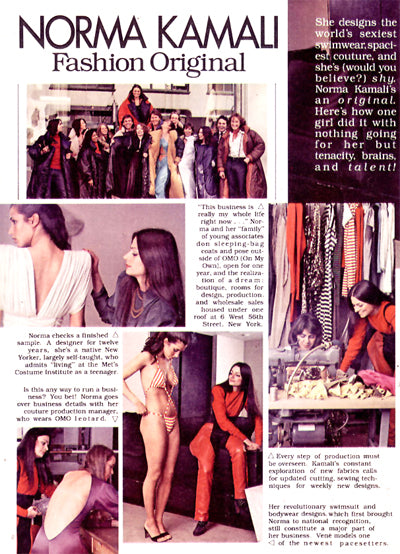 Norma Kamali Fashion Original article in Cosmopolitan Magazine September 1979[/caption]
Norma Kamali Fashion Original article in Cosmopolitan Magazine September 1979[/caption] 
Of Basque and Lebanese descent, Kamali was, and still is, the perfect model for her label. Her dramatic changing looks only add to the allure of her designs.
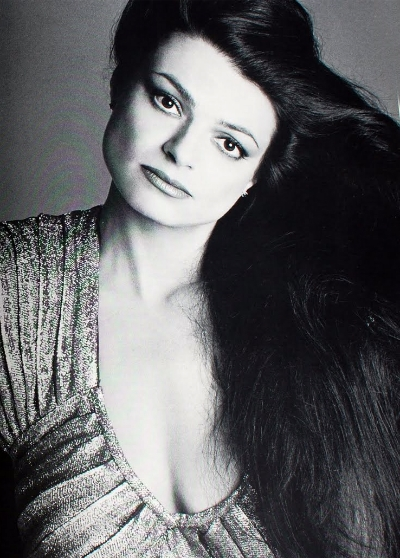
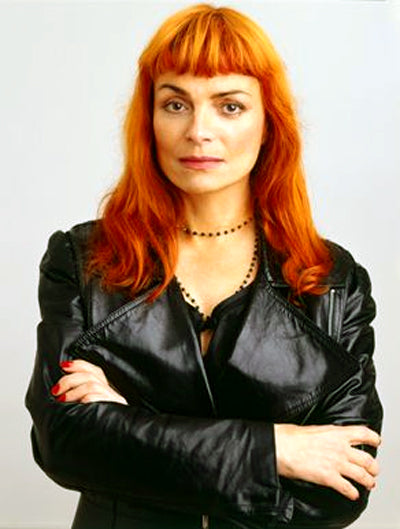

She opened her first shop in NYC with her husband at the time, in 1968. The store was so popular that she eventually out grew that space and moved to a new location on Madison Avenue.

Swimwear became one of Kamali's most long lasting fashion categories.Though the 1976 Farrah Fawcett swimsuit poster is International well known, it didn't have Norma Kamali's name on it, so not everyone knew that Fawcett was wearing one of Kamali's swimsuits. It was the Francesco Scavullo photograph on the cover of Cosmopolitan in 1977 of Christie Brinkley wearing one of Kamali's bikinis that brought public recognition to her brand.


Another staple of Kamali's fashion business over the years, as shoulder pads come and go and hemlines rise and fall, has been her famous "sleeping bag coat." Kamali supposedly imagined the design of the coat on a camping trip in the mid 70's when she had to get up in the middle of the night to go to the bathroom and wrapped her sleeping bag around her to keep warm. Everytime you see a version of the puffy coat, you can think of Norma Kamali.

Kamali divorced her first husband in the late 1970's and launched her own line OMO (which stands for "on my own") It was around this time that she launched her famous line of clothing made with sweatshirt material.

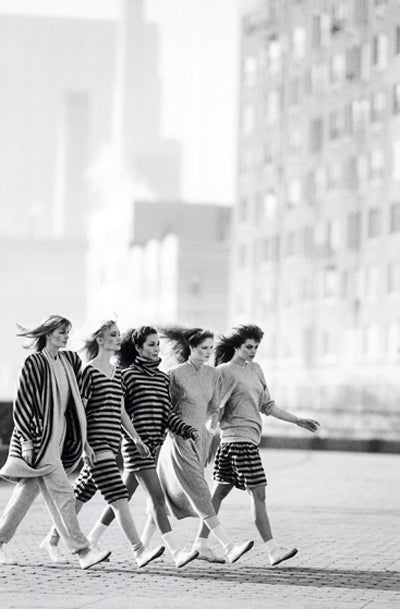
Norma Kamali has designed clothing for movies, ballets, and celebrities. Her lines have expanded to include home decor and a fragrance, and her longevity in the fashion industry is a true accomplishment.




In 1978, Kamali designed the costumes for the Emerald City scenes in the movie "The Wiz"

In the 1980's, Diana Vreeland added Norma Kamali's silk parachute dresses to the permanent collection at the Fashion Institute of the Metropolitan Museum of Art.




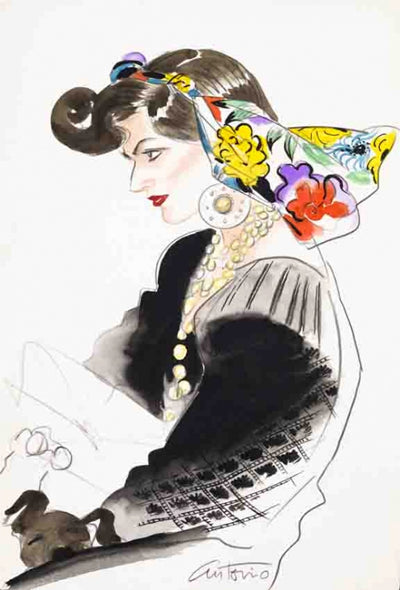

Kamali has has always created perfect fashion contradictions - sexy without being trashy, Modern, while incorporating the best of vintage, and feminine while projecting strength and power.

Kamali has been recognized for her talent with so many awards that they almost need a separate blog post! The coty award for design innovation, the coty award for women"s fashion design, The coty hall of fame award, the CFDA award for outstanding women"s fashions, the earnshaw (ernie) review for outstanding children"s sportswear design, the Fidm award from fashion institute of design and merchandising in LA, the CFDA award for innovative use of video in presentation and promotion of fashion. the annual interiors award for best retail design from interiors magazine. She has also been honored by the NY fashion group in a salute to women who have made a difference in the fashion industry.

Perhaps the thing I admire most about Norma Kamali is her newest campaign to stop the objectification of women - a cause near and dear to my heart. You can learn more about her efforts to empower women at the Stop Objectification website.
"As a fashion designer, since 1967, I have seen women taken under by feeling not pretty enough, thin enough, or in the right fashion. Decade after decade I wondered why we are so easily undone and I realize now that objectification is the main reason. Objectification is experienced in the workplace, and the home, and in all types of media and advertising. " Norma Kamali

Now, whenever I find vintage Norma Kamali pieces in my size I buy them. I love her new lines but still love her vintage pieces just as much as I did when they were introduced. You can find the pieces that don't fit me occasionally available on my website Dressing Vintage. And I have to say, even though I was angry at the thief who stole my precious Norma Kamali dresses, I have to give him or her just a little credit for having incredibly good fashion taste. :)

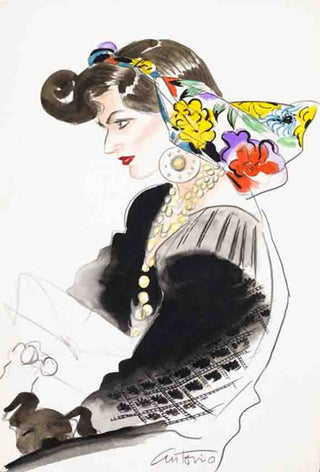
Debra A Exum Strahlendorf
Thank you!